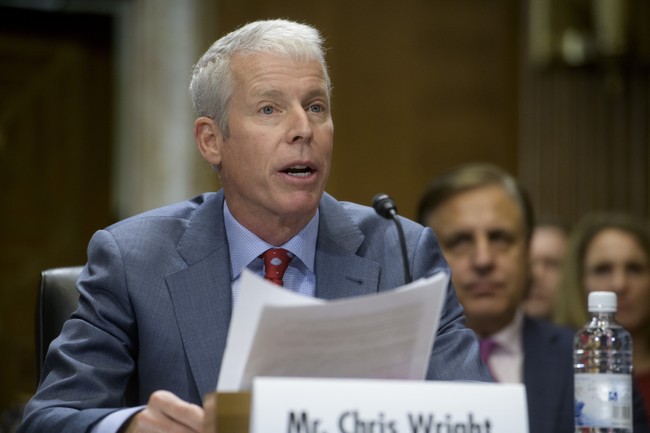A billion here, a billion there, and suddenly it’s no longer just chump change. On Friday, Secretary of Energy Chris Wright made headlines by announcing the cancellation of $3.7 billion in “green” energy projects that were part of the Biden administration’s initiatives. Interestingly, most of these grants were approved after the election and before January 20th.
The Trump administration has pulled the plug on these funds, which were meant for climate-related infrastructure projects. Secretary Wright explained that these projects didn’t meet the energy needs of Americans, weren’t financially sound, and wouldn’t offer a good return on taxpayer investment. The Department of Energy found that nearly 70% of the projects were signed between Biden’s election loss on November 5 and his last day in office on January 20.
Take, for instance, some of the affected projects. Nearly $332 million was withdrawn from a project at ExxonMobil’s Baytown, Texas, refinery. Another $500 million was slated for Heidelberg Materials in Indiana, and $375 million was intended for Eastman Chemical Company in Longview, Texas.
These projects involved carbon capture technology, which aims to prevent carbon emissions from entering the atmosphere. The technology is designed for facilities like refineries and coal-burning plants, storing emissions underground instead. But now, it’s back to the drawing board for these initiatives.
Critics, particularly those in the climate and environmental sectors, are already voicing their concerns. The Center for Climate and Energy Solutions argues that these cuts will result in a $4.6 billion loss in economic output and thousands of job losses. However, for these projects to truly contribute to the economy, they need to be profitable without taxpayer subsidies.
There’s also a chorus complaining that these cuts will “stifle innovation.” But if there’s profit to be made in these technologies, private enterprise will step up. If not, pouring more taxpayer money into them won’t change that. With a national debt of $37 trillion, it’s time to reconsider how we allocate resources.
These cuts should be seen as a step in the right direction. Ultimately, the goal should be to eliminate the federal Department of Energy altogether. Before 1977, the country functioned just fine without it, and there’s no constitutional basis for its existence.
To tackle the nation’s debt, Washington needs to put away the scalpel and begin using an axe. The Democrats, as expected, are unhappy with these developments, seeing their pet projects and funding streams face significant cuts.
The Department of Energy has unearthed billions in needless spending, much to the dismay of those relying on this financial support for their green endeavors. But it’s crucial to recognize that these are taxpayer dollars, and they should be spent wisely.
The outcry from environmentalists highlights the dependency on federal funding for projects that haven’t proven their economic worth. If these projects were truly viable, investors would back them without needing a government boost.
This step signals a push towards fiscal responsibility. It’s not just about cutting costs; it’s about ensuring taxpayer money is used efficiently. The debate over climate initiatives and government spending is far from over, but this decision marks an important point in the conversation.
These developments illustrate a broader shift in priorities, focusing more on projects that promise genuine economic returns. The skepticism surrounding the economic impact of these cuts remains, but the data will be telling.
In the wake of these cuts, it will be interesting to observe how private companies react. Will they continue to pursue these initiatives without federal backing, or will they pivot to other ventures?
The notion that innovation is solely dependent on government funding is misleading. History shows that many advancements come from the private sector, driven by market demands rather than subsidies.
The conversation around these cuts also underscores a need for transparency and accountability in how public funds are used. It’s a time for reflection on how such funds are allocated and whether they truly serve the public interest.
The pushback from environmental groups is expected, yet it’s crucial to evaluate these projects based on their merits and economic feasibility. Sustainable progress is important, but it must be achieved through sound fiscal practices.
This move by the Trump administration could set a precedent for future decisions regarding government-funded projects. The ongoing debate highlights the challenges of balancing environmental goals with economic realities.
As the dust settles, it will be crucial to monitor the long-term effects of this decision on both the economy and the environment. The road ahead will require pragmatic solutions that address both fiscal responsibility and environmental sustainability.



